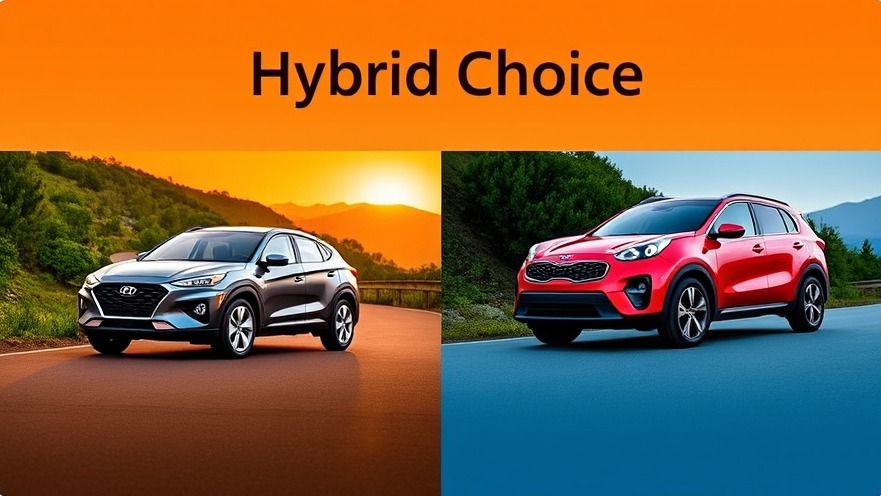
Hyundai Tucson Hybrid vs. Kia Sportage Hybrid: A Consumer Guide
As families and individuals search for hybrid SUVs that offer a blend of efficiency, performance, and practicality, the Hyundai Tucson Hybrid and Kia Sportage Hybrid emerge as noteworthy contenders. Both vehicles share a common platform and mechanical resemblance, making this head-to-head comparison interesting for those contemplating a purchase.
In 2026 Hyundai Tucson Hybrid VS Kia Sportage Hybrid, the discussion dives into the comparative analysis of these two popular SUVs, sparking a deeper exploration of their features and benefits.
Impressive Performance and Driving Experience
Both the Tucson and Sportage models impress with their powerful performance, boasting a 1.6L turbocharged engine combined with an electric motor. This setup delivers 230 horsepower and 260 pound-feet of torque, providing ample acceleration and pulling power that challenges the status quo in their class. Unlike many hybrids that utilize continuously variable transmissions (CVTs), these SUVs feature a conventional 8-speed automatic transmission, ensuring smooth gear shifts and a reassuring driving feel.
Exceptional Interior Space and Comfort
Inside both vehicles, buyers will find spacious and thoughtfully designed interiors. The ample front and rear passenger room accommodates adults comfortably, with generous cargo space for all travel needs. Notably, both hybrids come equipped with a dual-screen infotainment system, which combines a customizable digital driver display with a responsive touchscreen. While the Tucson delivers a more user-friendly control setup compared to the Sportage, both vehicles provide technology enthusiasts with features that enhance everyday driving.
Safety Features That Stand Out
Safety is a significant consideration for any vehicle purchase, and both the Hyundai Tucson and Kia Sportage shine in this area. With top safety ratings from the Insurance Institute for Highway Safety (IIHS), these models incorporate advanced safety technologies, including a robust camera system and highway driving assist. Their commitment to safety equals peace of mind for families using these vehicles daily.
Challenges in Fuel Efficiency and Reliability
However, potential buyers should consider some critical drawbacks. Despite their performance, the Tucson and Sportage struggle with fuel economy, rated between 35-38 miles per gallon. This limitation is a concern, particularly for buyers primarily motivated by the cost savings typically associated with hybrids. Moreover, Hyundai and Kia's reputation for reliability compared to competitors like Toyota may leave some consumers hesitant, particularly for those intending to keep their vehicles long-term.
Price Tag and Options
Pricing is another crucial factor when comparing these hybrid SUVs. While they offer many features, the cost can escalate quickly, particularly for higher trims and plug-in hybrid versions. Buyers will want to weigh whether the added tech and design justify the higher price, especially when alternatives like the Honda CR-V Hybrid and Toyota RAV4 Hybrid offer similar benefits with proven reliability.
So, as we navigate through these comparisons, the choice comes down to personal preference. Do you value a stylish design and advanced features more, or is reliability and fuel efficiency your top priority? The Hyundai Tucson and Kia Sportage are impressive vehicles—if you find yourself enticed by their offerings and are comfortable with their price point, they may well fit your needs.
If you’re in the car-buying market in Ontario, ensure you're well-informed. Remember that resources like the Ontario Vehicle Sales Regulator and car help services can empower your decision-making.
 Add Row
Add Row  Add
Add 




Write A Comment